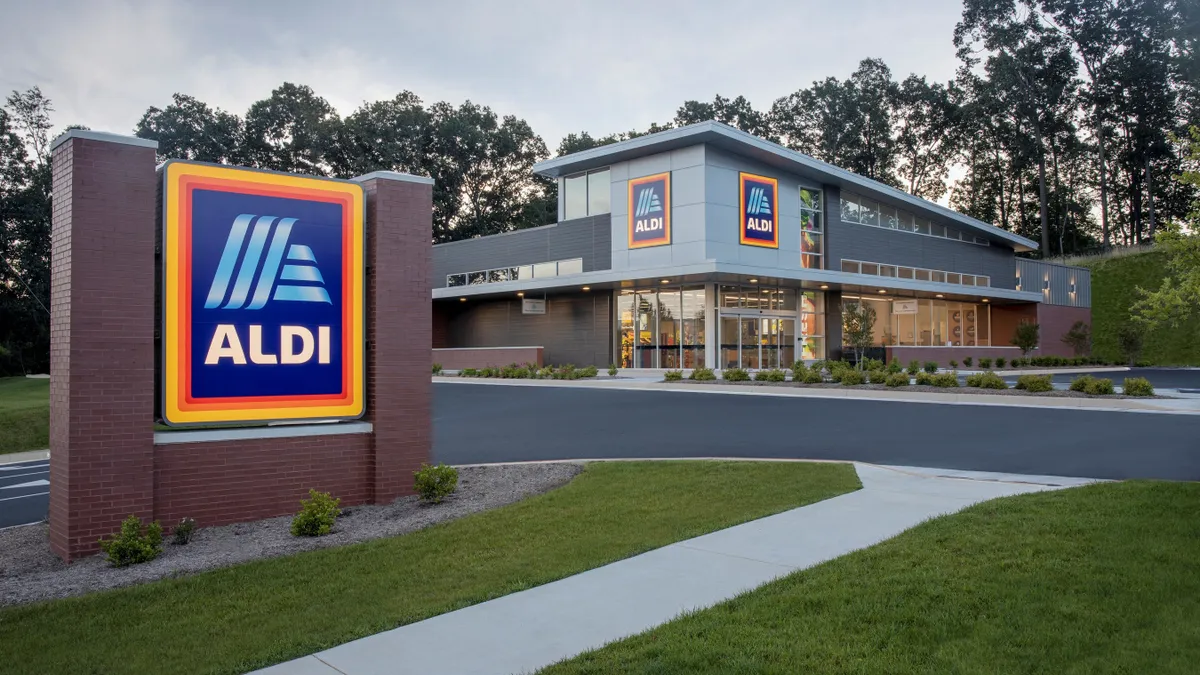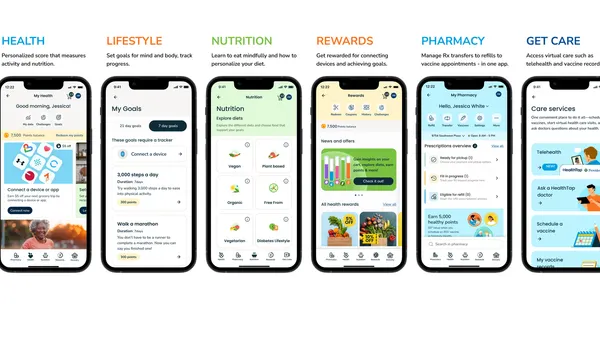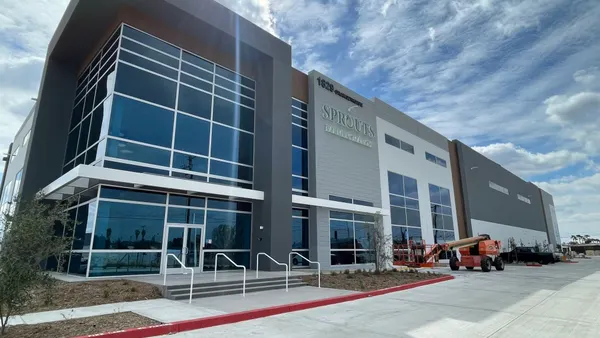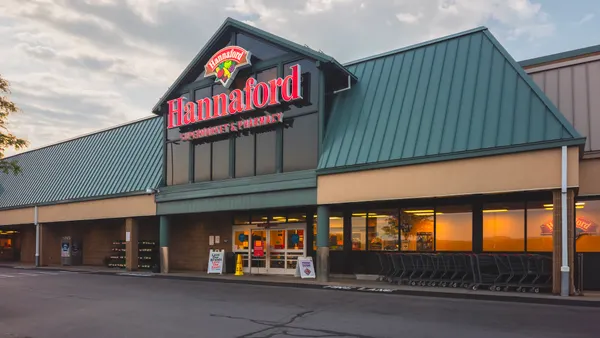Dive Brief:
- Aldi announced on Wednesday new sustainability goals that address greenhouse gas emissions, operational waste, packaging materials, food waste and more.
- By 2025, the discount grocer aims to reduce its greenhouse gas emissions by 26%, divert 90% of its operational waste and cut back its packaging materials by 15%, along with converting all of its Aldi-exclusive packaging to reusable, recyclable or compostable materials, according to a press release. By 2030, the grocer wants to halve the amount of food waste it currently produces.
- The announcement comes at a time when Aldi is rapidly growing its presence in the U.S. and grocers like Ahold Delhaize and Kroger are increasingly turning to greener goals.
Dive Insight:
Aldi's sustainability targets build on several measures the company has already taken, like recycling materials, donating food and installing solar panels on its stores and distribution centers. In addition, Aldi estimates that its practice of never having single-use plastic bags at checkouts has kept 15 billion bags out of landfills and oceans.
Aldi has also been removing excess plastic from packaging and rolling out alternative packaging for perishables, while labeling products to encourage shoppers to recycle.
While Aldi’s sustainability efforts stretch years back, the announced goals seem, in part, to respond to shopper demand for greener practices among companies. “ALDI has a responsibility to protect the environment and we know it’s an important priority for our customers,” Jason Hart, chief executive officer of Aldi U.S., said in a statement.
Aldi’s announcement outlined steps the grocer plans to take. For example, Styrofoam will be eliminated from produce packaging by the end of this year. By the end of 2022, the grocer aims to have 100% of its Barissimo and Simply Nature coffee sustainably sourced and to add solar panels to warehouses in Alabama and Kansas and approximately 60 stores. Currently, Aldi has solar panels installed at 111 stores and 12 distribution centers across the U.S.
The grocer also plans to continue pivoting to natural refrigerants in all of its stores, with all of its warehouses and almost 400 stores currently switched over.
Aldi noted that its plans for diverting its operational waste and halving food waste are still under development, but will likely include composting, nonfood donation programs, and expanded recycling and food recovery efforts.
Aldi's green goals follow similar announcements from competing grocers. Kroger has said it wants to make its private-label packaging more sustainable by turning to 100% recyclable, compostable or reusable materials and cutting out excess packaging, and The Giant Company announced earlier this year that it also is turning to greener refrigeration alternatives to cut refrigerant emissions. Ahold Delhaize, meanwhile, is working to halve its food waste by 2030, while United Natural Foods, Inc., which unveiled new sustainability targets in January, wants to halve its food waste by 2025.
Aldi has several tests underway for greener initiatives, like trying out recyclable and compostable paper bags for apples in select stores and seeing if it can eliminate all multi-use plastic bags from six stores in Richmond, Virginia, according to the press release. In a similar vein, Walmart is trying to go bagless at certain locations.












